Let's face it, at some point, we've all reused the same password across multiple platforms. It's tempting and convenient but poses a significant security risk. If one account is compromised, hackers can potentially access all your accounts using the same password. This is why the 2024 password guidelines from the National Institute of Standards and Technology (NIST) recommends using a software password manager like LastPass, Bitwarden, or 1Password.
But with a software password manager there is still one password you have to remember, the master password. It is imperative to have a very strong master password to because this protects your password manager and the rest of your accounts. Herein lies the problem, remembering a very long complex password is hard, and forgetting it is not an option as you could get locked out of your own accounts.
OnlyKey solves this problem. With OnlyKey, you only need to remember the PIN to unlock your OnlyKey. Its a physical device you always have with you on your keychain.
Watch a quick demo of how easy it is to set up OnlyKey to be used with our favorite software password manager, Bitwarden:
The next logical question to ask is well what if I lose my OnlyKey? If you lose your OnlyKey, no worries, you can have multiple OnlyKeys (we recommend the two OnlyKey and adapter bundle here). Another option is that OnlyKey has a secure backup capability. With OnlyKey you can truly be password free, with all of your passwords being long, complex, and not susceptible to hacks.
Watch a quick demo of how easy it is to create a secure backup of OnlyKey:
OnlyKey along with your software password manager is the perfect balance of convenience and security. Not only that, OnlyKey helps you easily comply with the 2024 password guidelines from the National Institute of Standards and Technology (NIST):
- Password Length and Complexity: NIST recommends using passwords that are at least 12 characters long and avoiding easily guessable passwords. OnlyKey’s hardware password manager stores complex passwords up to 58 characters long.
- Multi-Factor Authentication (MFA): NIST advises implementing MFA for an extra layer of security. OnlyKey can function as a FIDO2 hardware security key or generate One-time passwords to enhance your protection.
- Password Management: NIST recommends using a software password manager like Bitwarden to securely store and generate complex passwords. However, these require a very long, complex master password. With OnlyKey, you can store this super-strength password without having to remember it, keeping it conveniently with you on your keychain.
Are you ready to upgrade your security? Remember, your digital safety is in your hands. It's up to you to protect your accounts from potential threats!

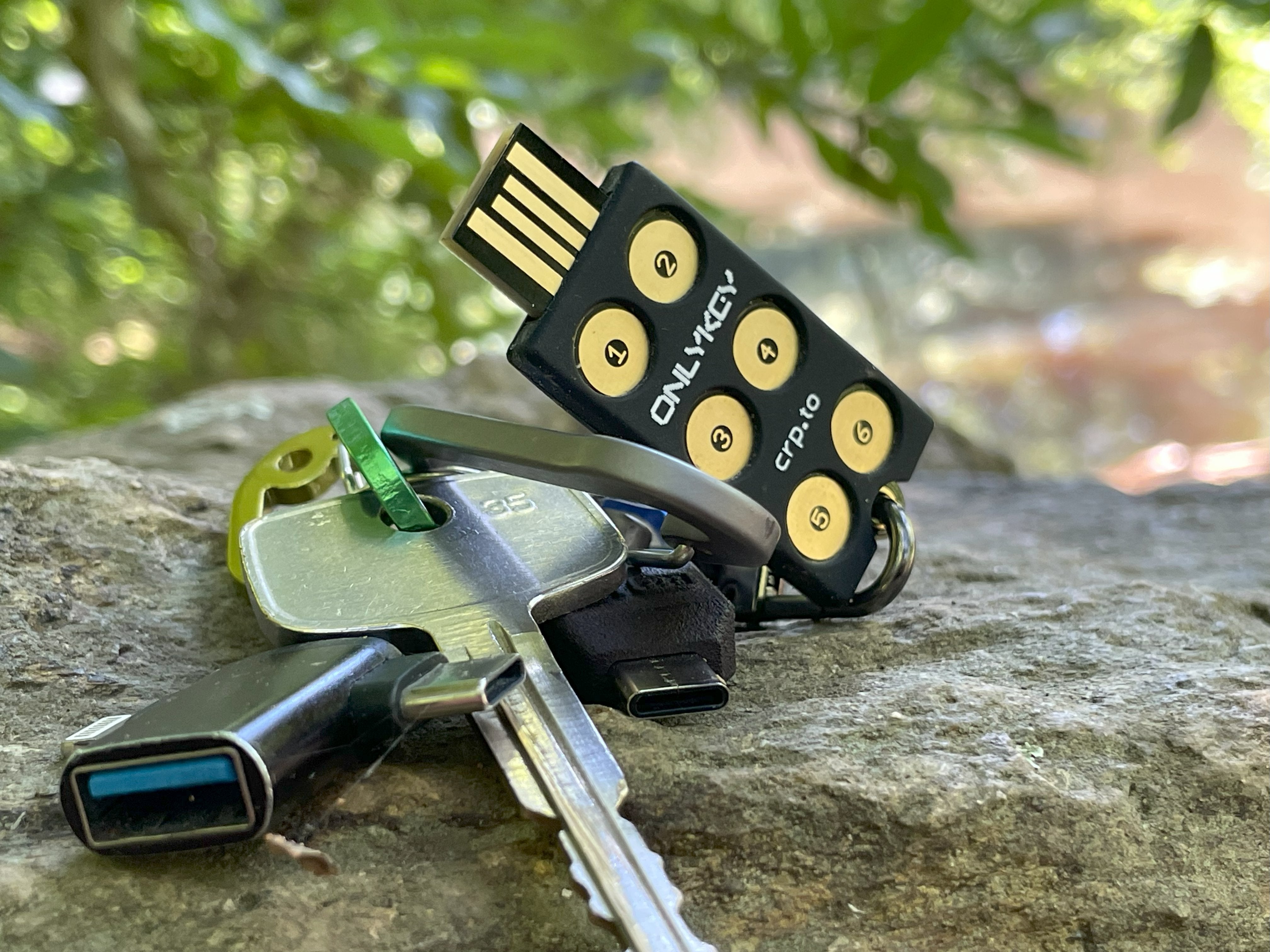
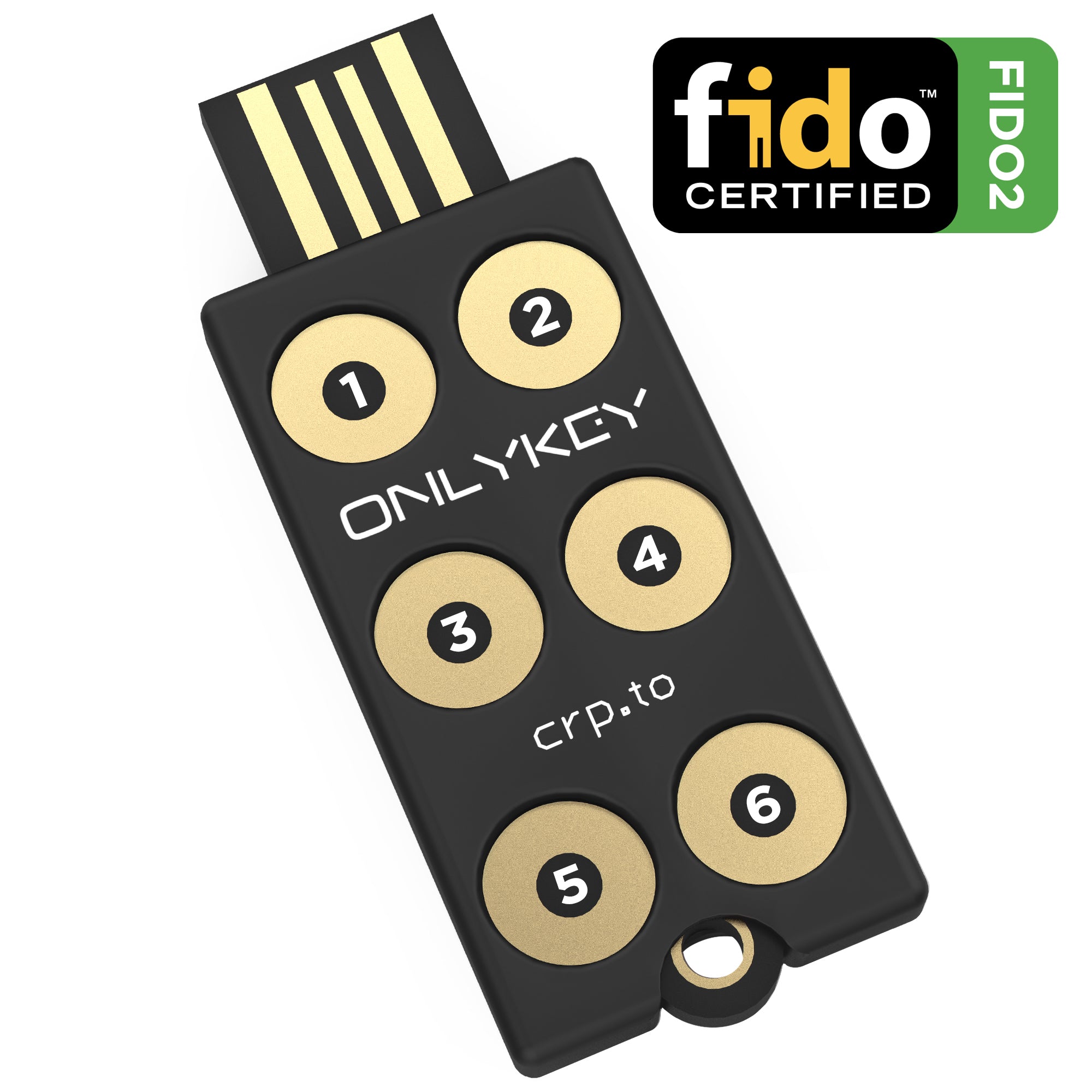
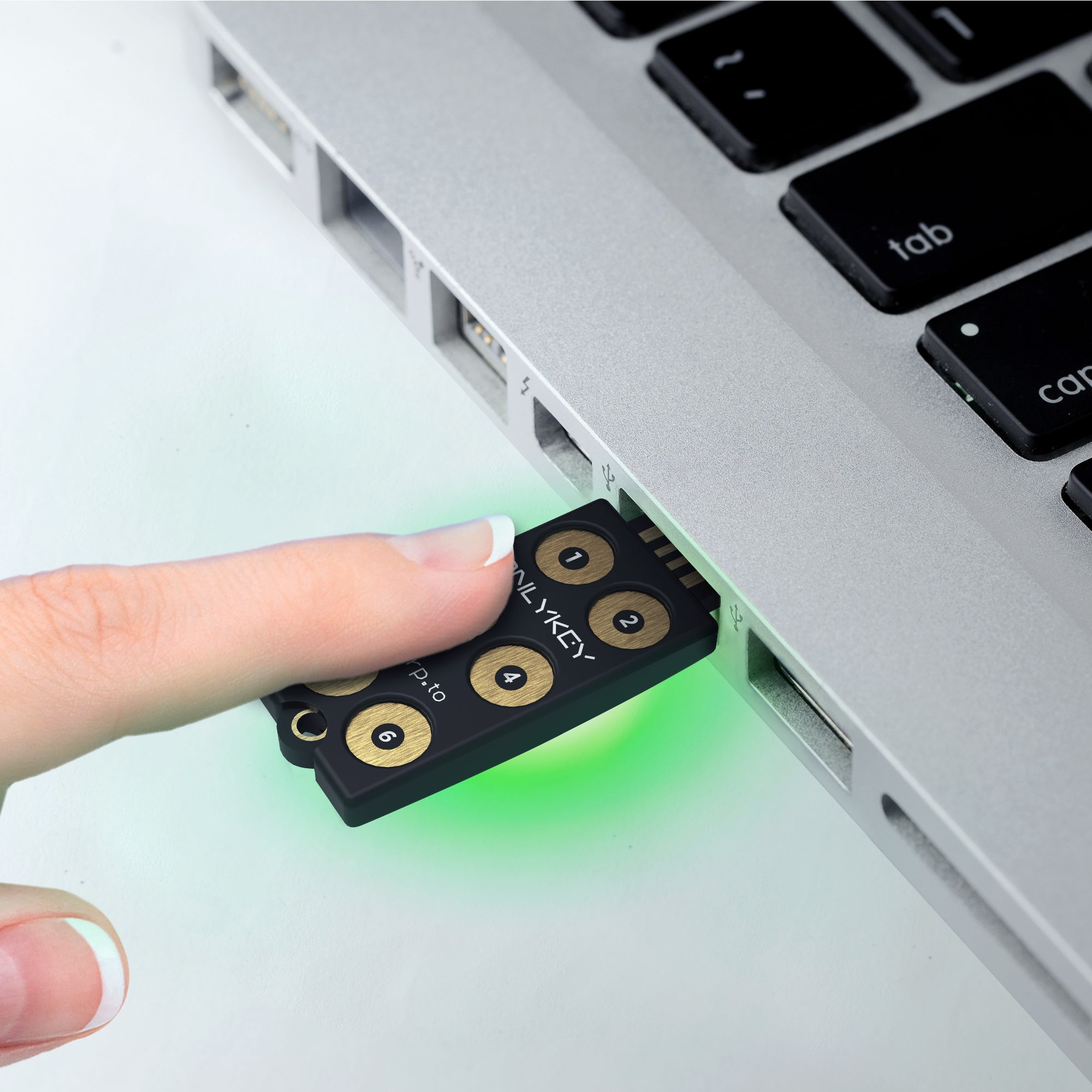
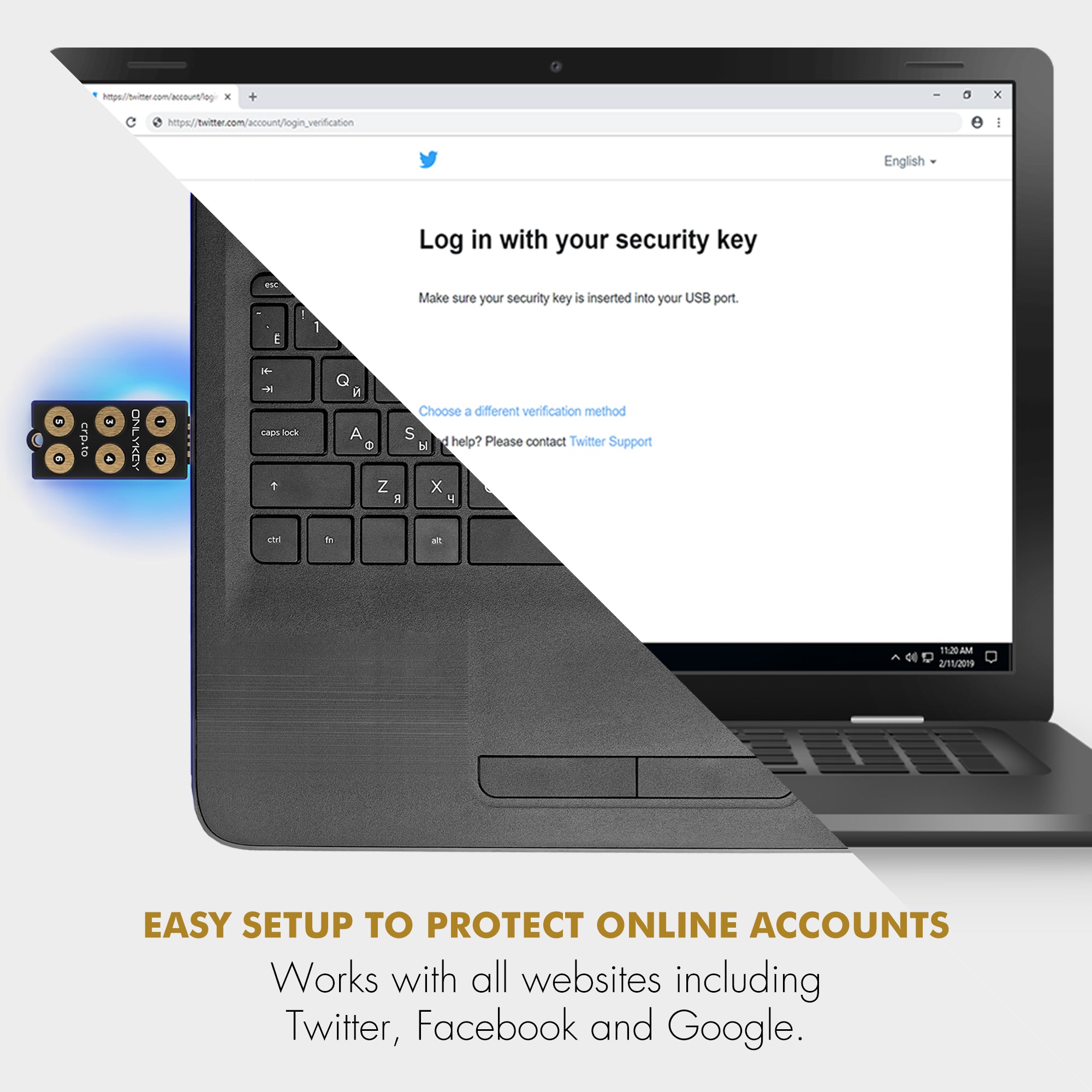
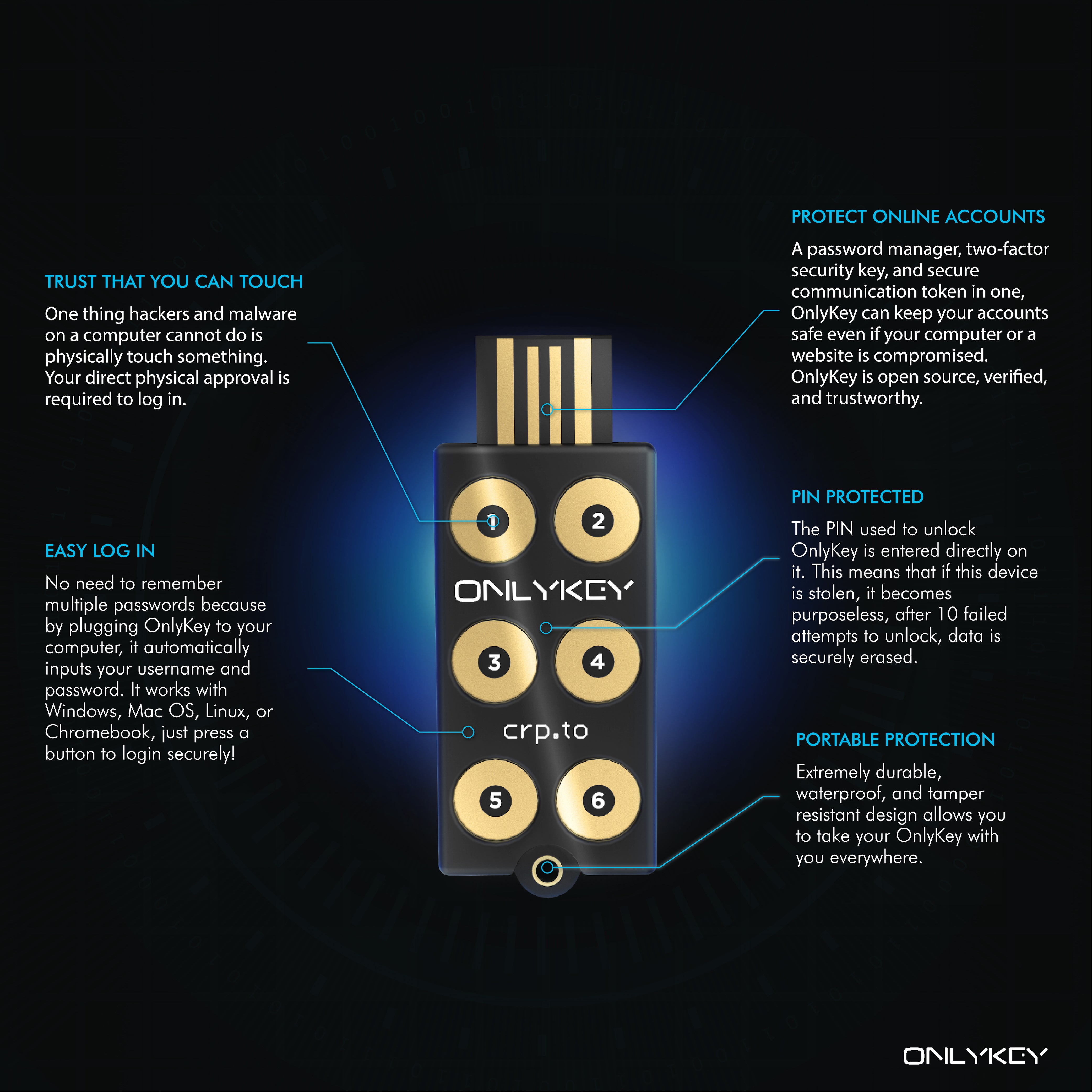

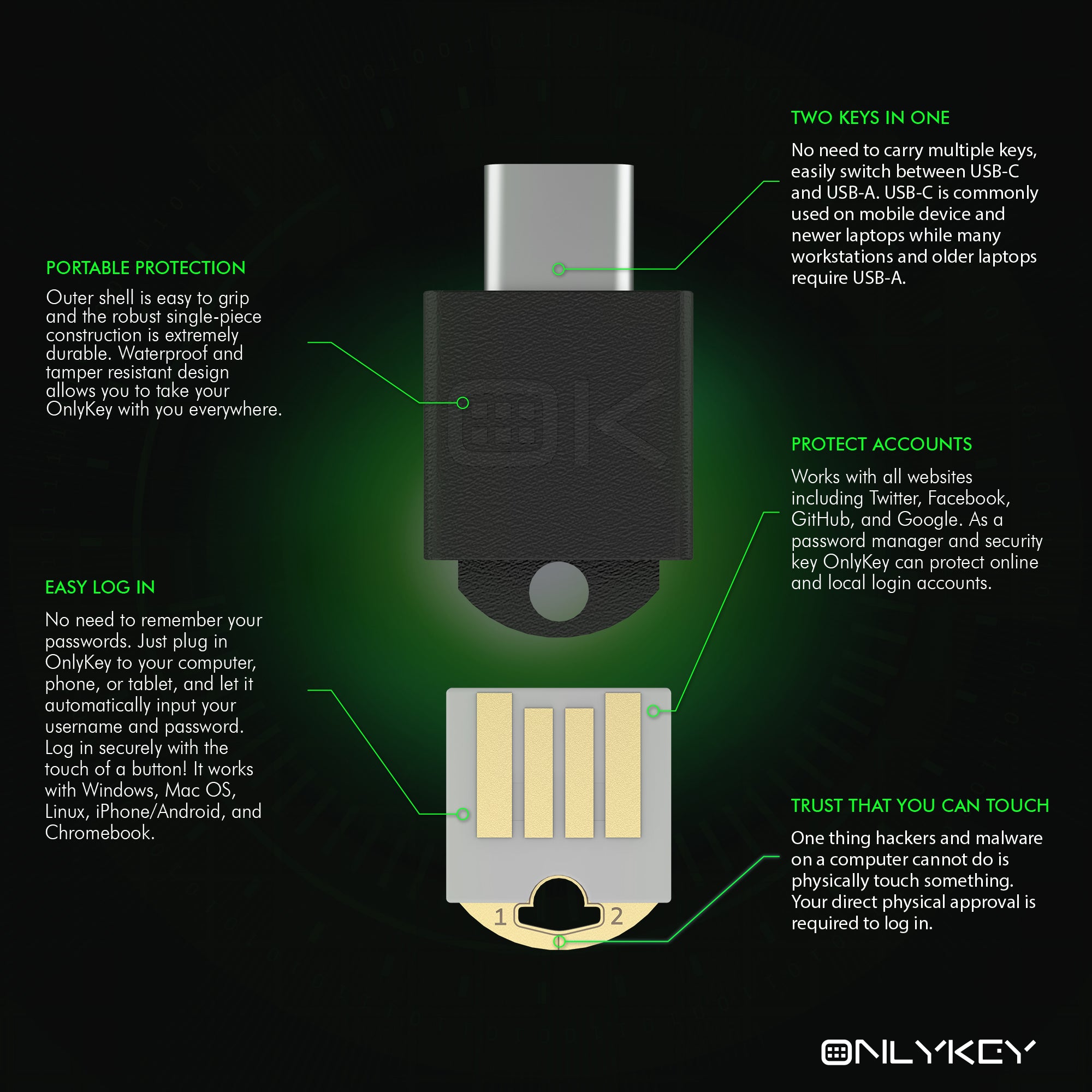



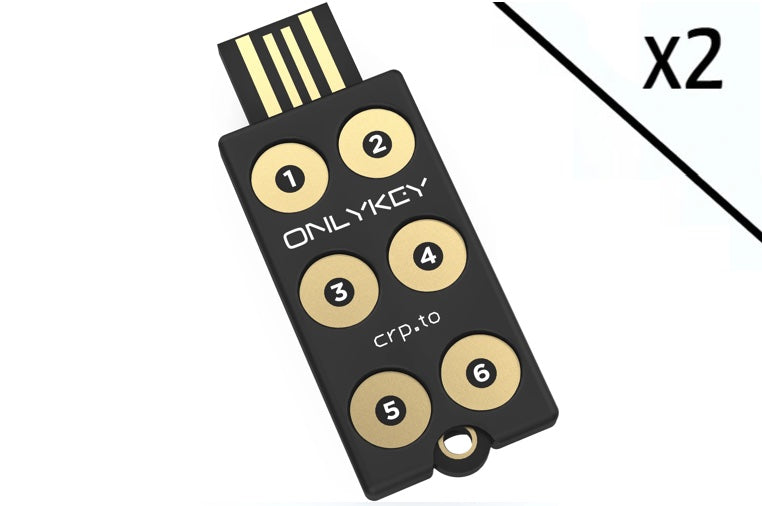


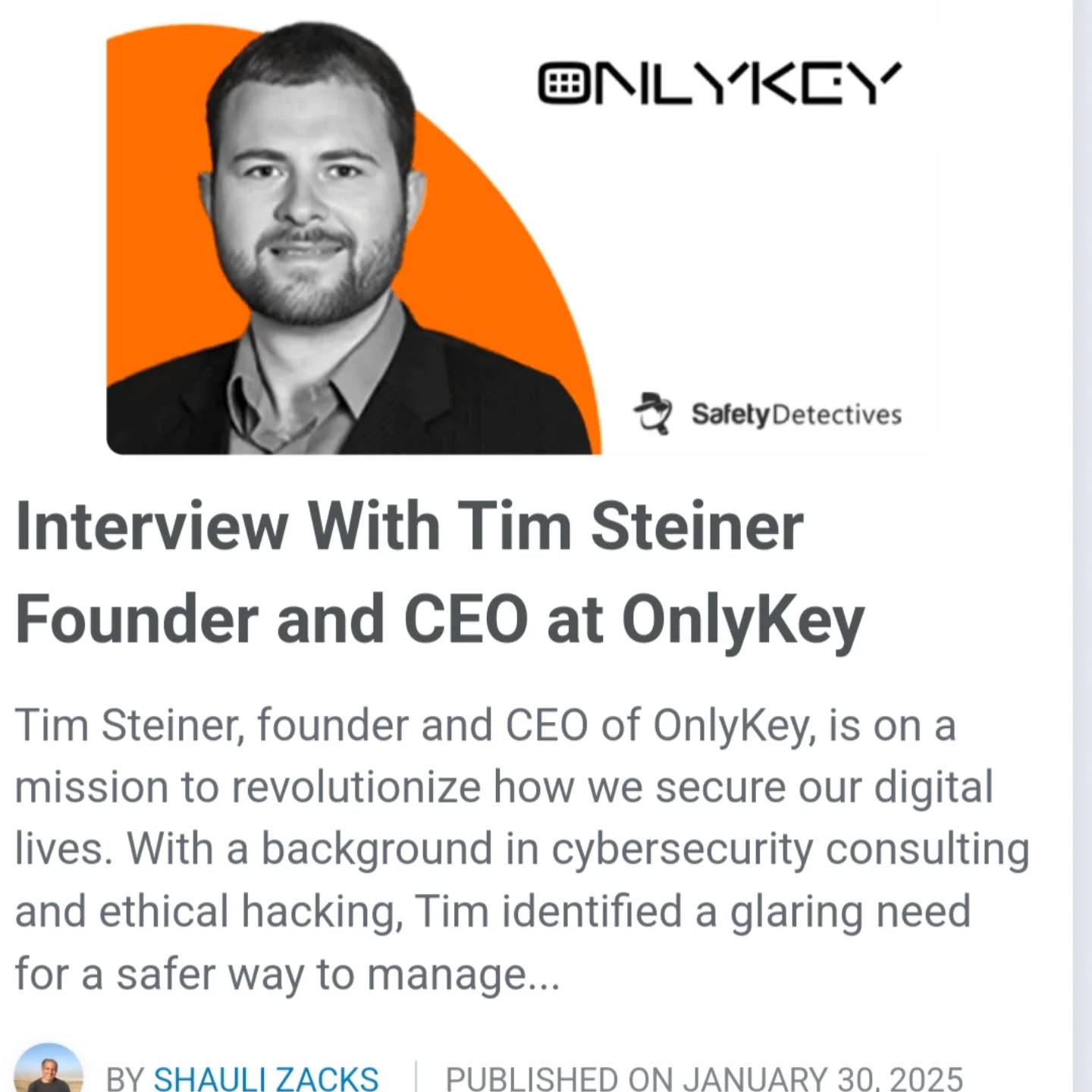


Share:
Lost phone? Find it with OnlyKey
The Fragility of Centralized Services: A Case for Decentralized Solutions